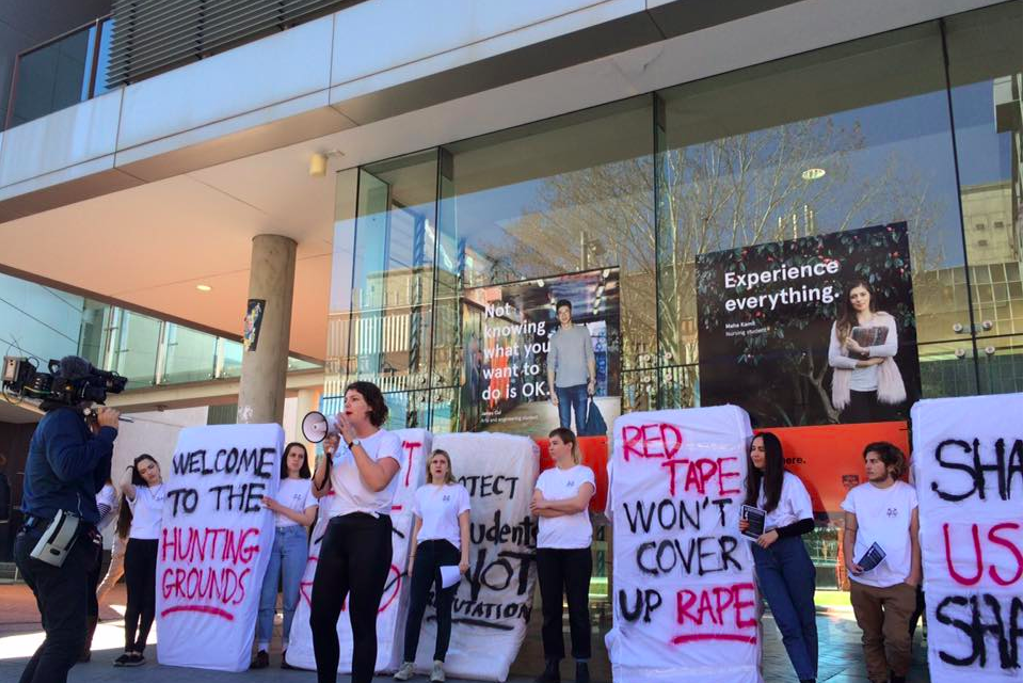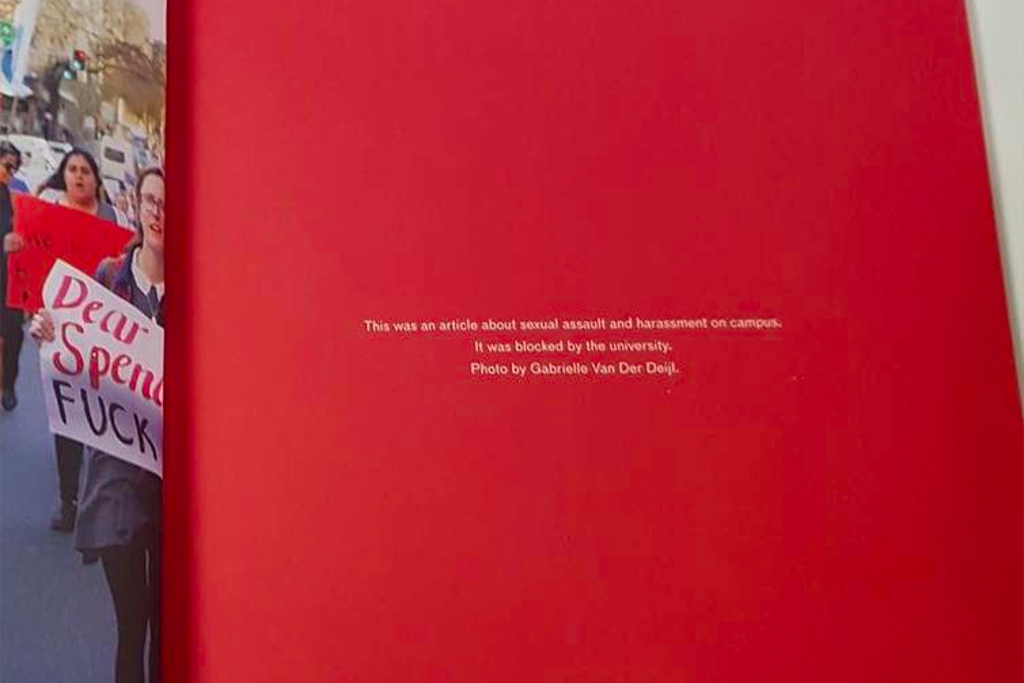Sydney University Just Launched A New Sexual Assault Policy While Ignoring Serious Concerns
The uni says it consulted students, but it clearly didn't listen.

Yesterday, to mark the one year anniversary of the Human Rights Commission’s Change The Course report on campus sexual assault, the University of Sydney released a new sexual assault and harassment policy with an accompanying online complaints portal.
This would be great, except that the university released these while fully aware that the online portal had some serious flaws that would deter survivors of sexual assault from using it.
Announcing the new system yesterday, University of Sydney Vice Chancellor Dr. Michael Spence said that “in the past 12 months we have taken some significant steps in collaboration with students, staff and experts in the field to implement the recommendations of the Change the Course report”.
Referring specifically to the online portal, which is intended to allow students to report incidents without making a formal complaint, Dr. Spence described it as “one component of our commitment to an improved complaints handling process that puts the needs of survivors first”.
On the face of it, this emphasis on collaboration with students and prioritising the needs of survivors sounds admirable. But according to the students and survivors who were consulted for the project, their concerns were not heeded.
Over the month of July in the lead-up to the portal’s release, the University of Sydney Students Representative Council (SRC) sent a number of detailed emails to Dr. Spence and other key staff involved in the design of the new policy, outlining concerns about the portal’s design. These concerns included the fact that the online form timed out and deleted a submission after ten minutes, meaning that rape survivors would be unable to take breaks while recounting traumatic experiences, and also that the form placed a harsh word limit on responses, again unnecessarily curtailing survivors’ reports.
Then there were concerns about the lack of clarity about which staff would be able to access the submissions once they were sent, the requirement that survivors provide personal information like their gender, sexual orientation and post-assault therapeutic history, and the lack of options allowing survivors to download a copy of their submission for their own records.
“Reporting your assault to the University can be very retraumatising and, therefore, it is normal for survivors to want to take breaks and tell their story over multiple sittings,” President of the USyd SRC Imogen Grant said.
“Management went as far to suggest that students take screenshots of the portal, paste them into a word document, fill out the questions in a word document and then copy and paste them back into the portal in order to circumnavigate the time limit.”
“We will see an enormous attrition rate of people accessing the portal but never finishing their report as they will be forced to write an account of their rape in a single sitting without breaks.”
In its emails to USyd management, the SRC repeatedly requested that the launch of the portal be delayed until these problems were fixed, asking that the university liaise with trauma and sexual assault experts to design a truly survivor-centric form.
“There is a serious danger in rushing to an artificial deadline less than three weeks away and thereby undermining the efficacy of the project. We are concerned you are prioritising the press announcement and cheap reputational wins above doing the job properly,” Grant wrote in one email, dated July 13. “We believe it would be unethical and irresponsible to proceed as planned.”
In response to detailed questions about why the students’ complaints were ignored, a University of Sydney spokesperson told Junkee that “we have received feedback from students that the online portal for reporting sexual assault has some technical issues.”
“This feedback is incredibly valuable to us and we have already taken steps to amend some issues, including the removal of a time limit, and we will look to update the portal as soon as possible to allow anyone to make a disclosure.”
“We acknowledge there is more we need to do and we will continue to develop multiple channels of reporting and support for our students and broader community over the coming months.”
The University did not respond to questions about why it did not delay the launch of the portal until these concerns were addressed. It did not acknowledge the fact that it was made aware of the system’s flaws several weeks before the launch.

